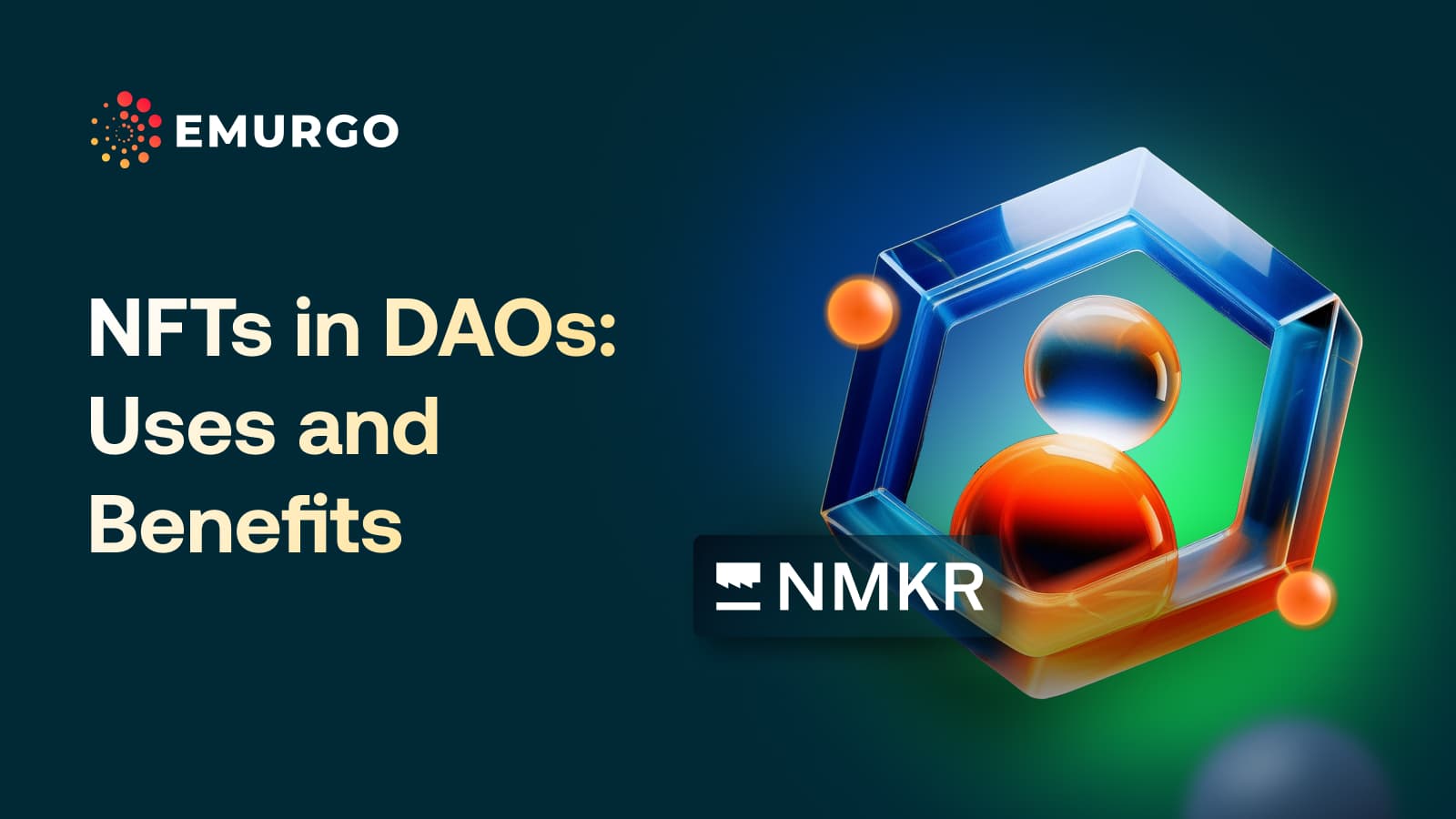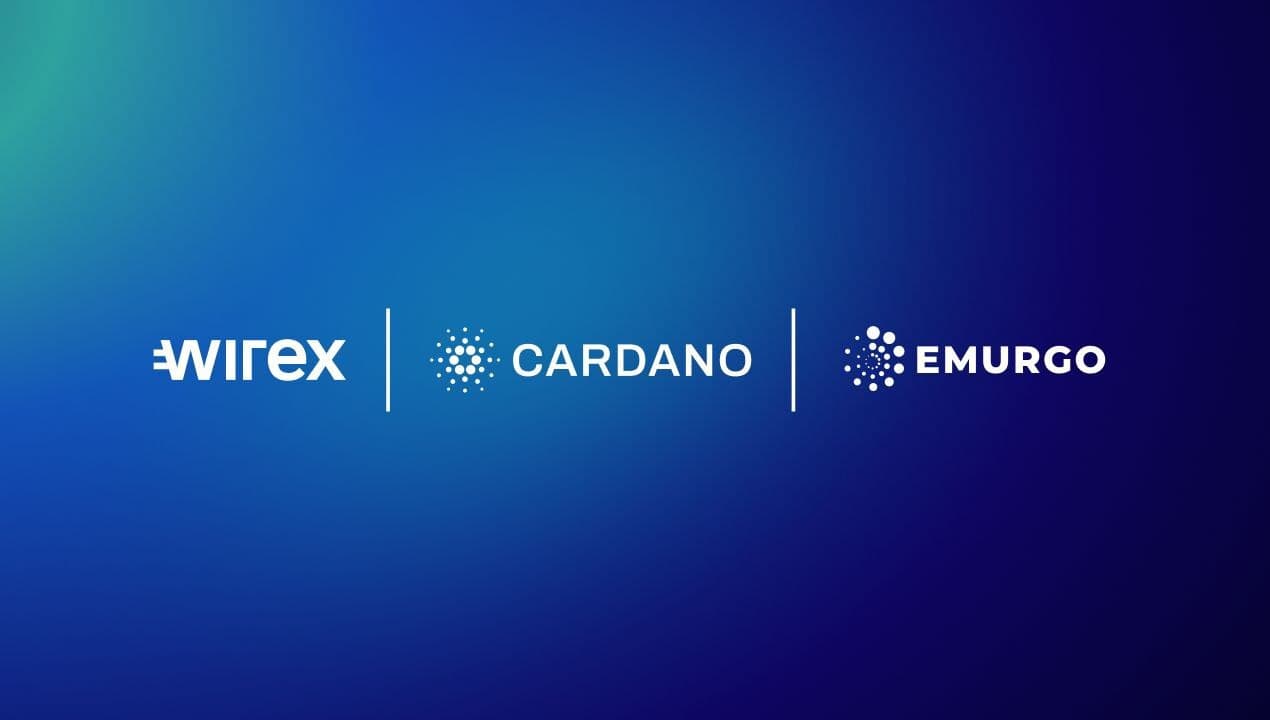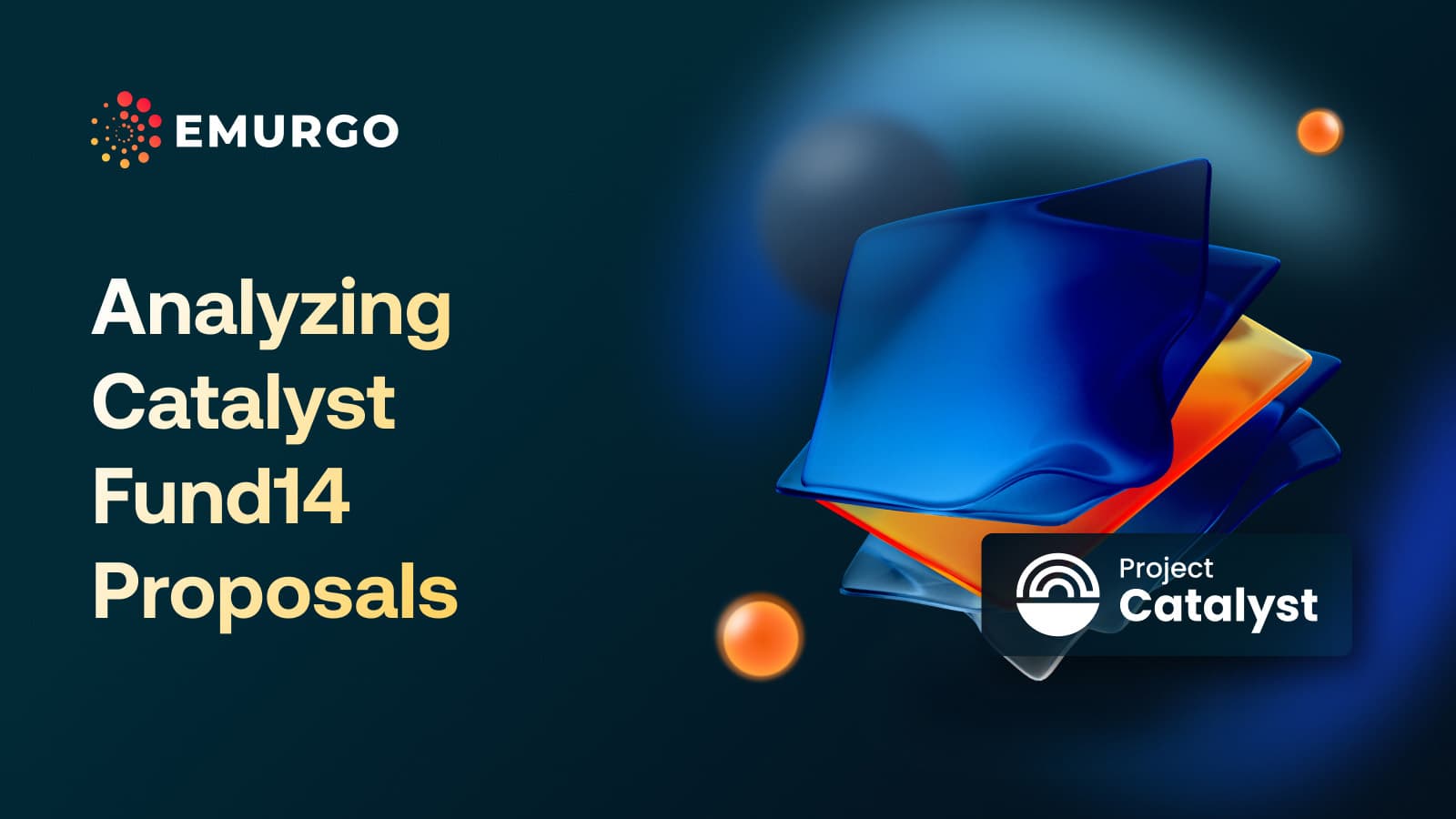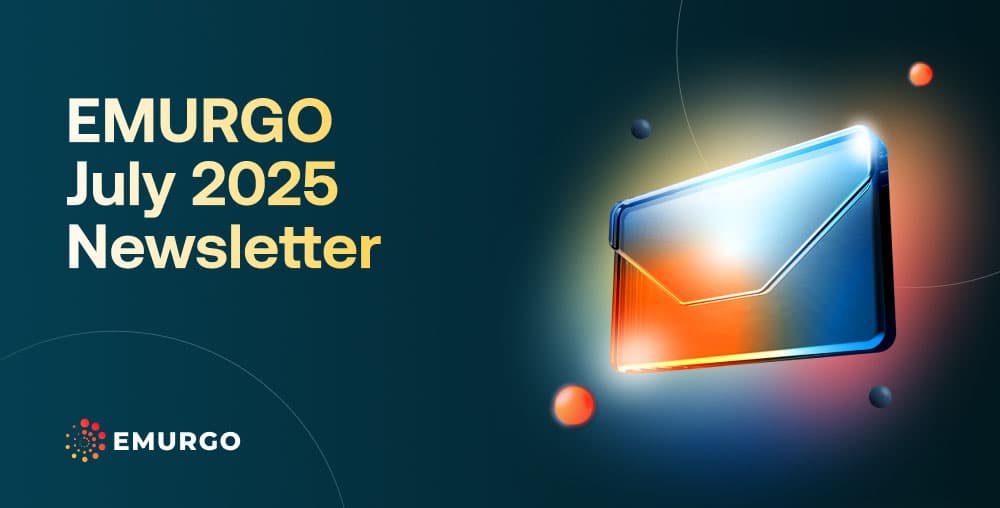NFTs (non-fungible tokens) are expanding their footprint across various sectors of the blockchain industry. Originally seen as a means of distributing media such as images, NFTs have expanded their use cases to boost the potential for mainstream Web3 adoption further.
A prime example of these evolving NFT use cases is how decentralized autonomous organizations (DAOs) are starting to leverage NFTs to manage their operations.
As digital entities native to a decentralized blockchain, DAOs are at the forefront of adopting NFTs for various administrative functions.
In this blog, we’ll explore how DAOs are utilizing NFTs to streamline and enhance their management processes.
What is a DAO?
A DAO is a native entity within the blockchain or Web3 ecosystem. It operates as a type of digital organization where decisions are made through group consensus and executed on-chain, meaning its processes and records are immutably and transparently documented on a decentralized blockchain network.
DAOs are typically global and accessible, with members from around the world collaborating on various related projects for their sustainability and development.
In Japan, companies are now able to start establishing DAOs to raise capital in the form of NFTs and to conduct business operations on-chain, thereby providing more transparency and accountability as well as efficiency in the digital age.
However, DAOs also face challenges in identifying members, allocating resources, providing rewards, and verifying individual contributions, among others.
This is where NFTs come into play, offering unique solutions for DAOs to these challenges through their technological properties.
Read more: EMURGO’s support for DAO adoption in Japan
How DAOs utilize NFTs
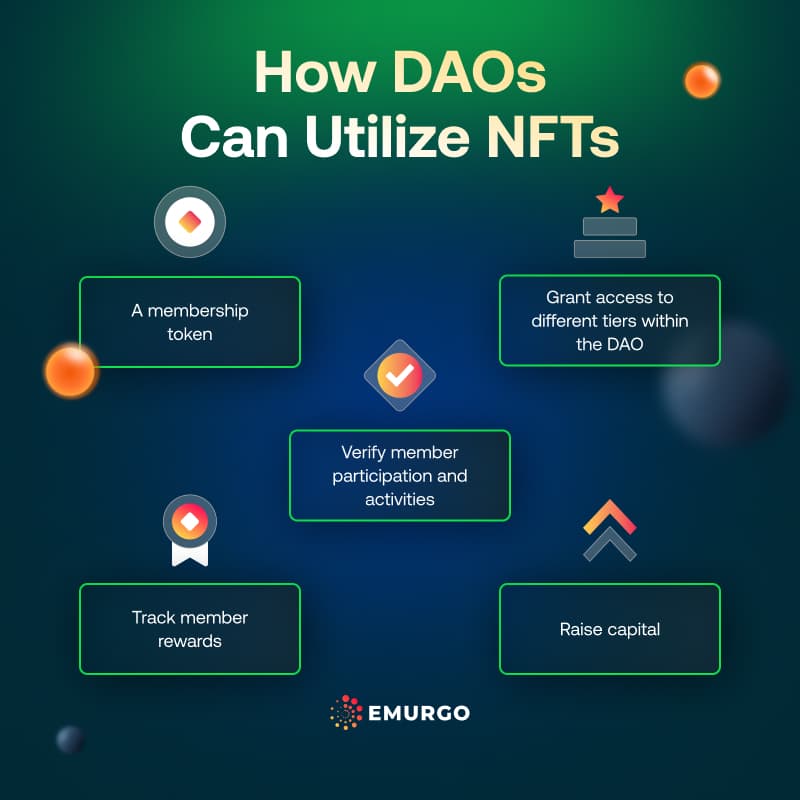
An NFT is a digital token issued on a decentralized blockchain such as Cardano. Within the NFT can be relevant data and information in its token metadata. The NFT can represent a variety of different assets with each NFT being unique.
Here’s a list of five ways DAOs use NFTs for their administrative processes.
1. Membership verification
First, NFTs are often used as a type of membership badge in DAOs. Since DAOs operate globally and are part of the blockchain ecosystem, members can sometimes remain anonymous, making it challenging to distinguish genuine members from those who might attempt to deceive others.
This is where NFTs provide an ideal solution by offering a way to verify and identify DAO members. DAOs issue NFTs to their members, granting them specific responsibilities and the authority to represent the organization. This approach helps to separate legitimate members from other users and ensures a more secure and trustworthy environment for the members collaborating within a DAO.
2. Grant access to tiers within a DAO
NFTs can also represent tiers or levels of advancement within a DAO. As a member progresses within the organization, they may take on additional duties and gain access to more resources.
Using updatable or dynamic NFTs such as Cardano-based NFTs allows for modifications in an NFT that reflect a member’s increased access and responsibilities. As members advance within the DAO’s structure, their membership NFT can be updated to include new details and privileges.
This approach provides a decentralized yet objective method of recognizing responsibility. Additionally, if a member decides to take a break or leave the organization, their NFT can be frozen or removed from circulation to accurately reflect their new status.
3. Verify participation and active membership
Participation is central to the success and sustainability of a DAO. For a DAO to thrive, its members must be active in completing new projects and growing existing initiatives.
But how can a DAO measure participation and member activity?
This is a challenge that organizations of all types and sizes face.
In the Web3 world, “proof-of-attendance” offers a solution. This concept involves issuing NFTs to members who attend meetings, participate in projects, contribute to tasks, or attend conferences. These NFTs serve as badges that can be collected to demonstrate a member’s commitment to the DAO.
The more badges a member accumulates, the easier it becomes to recognize them as someone who is actively contributing and potentially ready to move up in the ranks.
These can be stored and sent to wallets such as Yoroi that support NFTs.
4. Track member rewards and incentives
Building on the previous example, NFTs can also be linked to rewards. For instance, a member who attends a conference organized by the DAO might receive a Proof-of-Attendance NFT, which is accompanied by a token reward.
This approach allows other members to verify that the reward was earned through participation in a specific activity, ensuring transparency and fairness. NFTs can thus be used not only to distribute tokens but also to serve as records documenting the reason behind each reward.
5. Raise capital via crowdfunding
As with the case of private Japanese companies due to their new regulatory framework, those setting up DAOs in the country have the potential to use NFTs to raise capital through crowdfunding.
This presents an innovative approach to fundraising as long as local regulations are followed and clearly outlined, offering businesses the opportunity to tap into a global audience and explore new markets. Rather than just a digital collectible, the NFT could also potentially uniquely represent a stake in a business along with voting rights and other privileges.
The global nature of NFTs makes them particularly attractive for fundraising, especially in industries where traditional financing has become difficult due to environmental or social concerns. NFTs enable businesses to introduce their brand, access a global investor base, and enhance their credibility by showcasing their willingness to embrace innovative fundraising methods.
Additionally, NFTs can improve liquidity by being traded on secondary markets, making them appealing to investors who seek exit options.
For businesses considering NFT fundraising, it is crucial to ensure the NFTs have long-term value, are integrated into a larger ecosystem, and comply with local regulations, ultimately providing a novel way to raise capital and engage with a global community of investors.
NMKR and DAOs
NMKR is an NFT and tokenization service leveraging the Cardano blockchain. Its platform and tools enable businesses and individuals to tokenize assets and mint NFTs without any coding knowledge.
It has also been granted preliminary approval by the Japan DAO Association as a legitimate DAO tool for Japanese companies looking to set up DAOs along with Yoroi Wallet and Clarity for things such as a membership NFT.
Read more: How NMKR adds value to brands
Follow EMURGO on X and LinkedIn for NFT and tokenization content
Want to learn more about NFTs and their use cases beyond just images? Interested in asset tokenization?
Then, follow EMURGO on X and LinkedIn
About EMURGO
- Official Homepage: emurgo.io
- X (Global): @EMURGO_io
- YouTube: EMURGO channel
- LinkedIn: @EMURGO_io
Disclaimer
You should not construe any such information or other material as legal, tax, investment, financial, or other advice. Nothing contained herein shall constitute a solicitation, recommendation, endorsement, or offer by EMURGO to invest.
